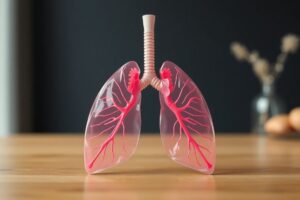
Erectile dysfunction (ED) is a prevalent and distressing condition that affects a significant number of men worldwide. It refers to the consistent inability to achieve or maintain an erection sufficient for satisfactory sexual activity. While occasional difficulties in achieving or maintaining an erection are normal, persistent problems can be emotionally challenging and impact various aspects of a man’s life.
ED can have a profound impact on a man’s self-esteem, intimate relationships, and overall quality of life. The frustration and embarrassment associated with the inability to perform sexually can lead to feelings of inadequacy, anxiety, and even depression. It is crucial to address this condition and seek appropriate help to regain sexual confidence and improve overall well-being.
In this comprehensive article, we aim to provide a deeper understanding of erectile dysfunction by exploring its causes, symptoms, and available treatment options. By shedding light on this topic, we hope to empower individuals with the knowledge and resources necessary to take proactive steps towards managing and overcoming this condition.
By unraveling the underlying factors contributing to erectile dysfunction, we can break the stigma surrounding it and encourage open discussions. Recognizing that erectile dysfunction is a common and treatable condition, we aim to alleviate the sense of isolation and encourage affected individuals to seek the help they deserve.
Throughout this article, we will examine the physical, psychological, and lifestyle factors that can contribute to erectile dysfunction. We will discuss the various symptoms and signs to watch out for, ensuring individuals can recognize when it is time to seek professional guidance. Additionally, we will explore the array of treatment options available, ranging from medications to therapy, lifestyle adjustments, and alternative approaches.
It is important to note that while this article provides valuable information, it is not intended to replace the advice of healthcare professionals. If you or a loved one is experiencing persistent erectile dysfunction, we strongly recommend consulting with a qualified medical practitioner for a thorough evaluation and personalized treatment plan.
Together, let us embark on a journey of understanding and empowerment. By expanding our knowledge about erectile dysfunction, we can promote healthier discussions, diminish the stigma surrounding this condition, and pave the way for improved sexual health and overall well-being.
Table of Contents
- What is Erectile Dysfunction?
- Causes of Erectile Dysfunction
2.1 Physical Factors
2.2 Psychological Factors
2.3 Lifestyle Factors - Symptoms of Erectile Dysfunction
3.1 Difficulty Achieving or Maintaining Erections
3.2 Reduced Sexual Desire
3.3 Emotional Distress - Diagnosis of Erectile Dysfunction
4.1 Medical History and Physical Examination
4.2 Blood Tests
4.3 Psychological Evaluation
4.4 Additional Diagnostic Measures - Treatment Options for Erectile Dysfunction
5.1 Medication
5.2 Therapy and Counseling
5.3 Lifestyle Changes
5.4 Alternative and Complementary Approaches - Prevention and Self-Care Strategies
- Conclusion
- Special Note To Reader
- FAQ
- Articles of Interest
What is Erectile Dysfunction?
Erectile dysfunction (ED), also commonly referred to as impotence, is a condition characterized by the consistent inability to achieve or maintain an erection firm enough for satisfactory sexual intercourse. While occasional difficulties in achieving or sustaining an erection are not uncommon, persistent problems can significantly impact a man’s sexual confidence, intimate relationships, and overall well-being.
ED can manifest as a temporary issue, arising from specific circumstances such as stress, fatigue, or excessive alcohol consumption. However, for some individuals, it can become a chronic condition that persists over an extended period, requiring medical intervention and management.
The process of achieving an erection involves a complex interplay of physical, neurological, and psychological factors. When sexual arousal occurs, the brain sends signals to the nerves in the penis, triggering the release of certain chemicals that cause the smooth muscles in the blood vessels of the penis to relax. This relaxation allows for increased blood flow into the penile arteries, leading to the engorgement and expansion of the erectile tissues, ultimately resulting in an erection.
In the case of erectile dysfunction, this intricate process may be disrupted due to various underlying causes. Physical factors often play a significant role, including conditions that affect blood flow, nerve function, or hormone levels. Common physical causes include cardiovascular diseases (such as atherosclerosis), diabetes, hypertension, obesity, hormonal imbalances (such as low testosterone levels), and certain medications or treatments (such as those used for prostate cancer or depression).
Moreover, psychological factors can contribute to the development or exacerbation of erectile dysfunction. Mental health conditions like anxiety, depression, stress, and relationship problems can interfere with sexual arousal, desire, and performance. The anxiety or fear of not being able to achieve or maintain an erection can create a cycle of performance anxiety, further exacerbating the problem.
It is worth noting that lifestyle choices can also influence erectile function. Habits such as smoking tobacco, excessive alcohol consumption, drug use, and a sedentary lifestyle can contribute to the development of erectile dysfunction. Additionally, poor nutrition, lack of exercise, and chronic stress can impact overall cardiovascular health and blood flow, indirectly affecting erectile function.
While erectile dysfunction can be a sensitive and challenging topic to discuss, it is crucial to recognize that it is a common condition that affects men of all ages. Seeking professional help and guidance from healthcare providers who specialize in sexual health can provide valuable insights and tailored treatment options.
Understanding the underlying causes of erectile dysfunction is the first step toward effective management and treatment. By addressing the physical, psychological, and lifestyle factors contributing to ED, individuals can take proactive steps toward regaining sexual function and improving their overall quality of life. With advancements in medical research and a comprehensive approach to treatment, many individuals can successfully overcome erectile dysfunction and enjoy fulfilling sexual relationships once again.
Causes of Erectile Dysfunction
Erectile dysfunction (ED) can stem from a variety of factors, including physical, psychological, and lifestyle influences. Understanding these causes is crucial in order to address the underlying issues and develop an appropriate treatment plan.
Physical Causes:
a) Cardiovascular Diseases:
Conditions that affect the heart and blood vessels, such as atherosclerosis (narrowing of the arteries), high blood pressure (hypertension), or heart disease, can impede proper blood flow to the penis, leading to erectile difficulties.
b) Diabetes:
Uncontrolled diabetes can damage blood vessels and nerves, impairing the normal physiological processes involved in achieving and maintaining an erection.
c) Hormonal Imbalances:
Low levels of testosterone, the primary male sex hormone, can contribute to erectile dysfunction. Hormonal imbalances can result from conditions like hypogonadism or certain medical treatments.
d) Medication Side Effects:
Some medications, such as those prescribed for high blood pressure, antidepressants, antipsychotics, and certain prostate cancer treatments, can have side effects that interfere with erectile function.
Psychological Factors:
a) Stress and Anxiety:
Psychological stress, including work-related stress, financial pressures, or relationship difficulties, can significantly impact sexual performance and contribute to erectile dysfunction.
b) Depression:
The mental and emotional burden of depression can reduce sexual desire and impair erectile function.
c) Performance Anxiety:
Past experiences of erectile difficulties can create anxiety about future sexual encounters, leading to a self-perpetuating cycle of performance anxiety and worsening erectile function.
d) Relationship Issues:
Problems within a relationship, such as communication breakdown, emotional distance, or unresolved conflicts, can contribute to erectile dysfunction.
Lifestyle Factors:
a) Smoking:
The chemicals in tobacco can damage blood vessels and impair blood flow, negatively affecting erectile function.
b) Excessive Alcohol Consumption:
Heavy drinking can lead to temporary or chronic erectile difficulties by interfering with the central nervous system and impairing blood flow.
c) Lack of Exercise:
Sedentary behavior and a lack of physical activity can contribute to obesity, cardiovascular problems, and reduced blood circulation, all of which can impact erectile function.
d) Poor Nutrition:
A diet high in saturated fats, processed foods, and sugars can contribute to obesity, diabetes, and cardiovascular diseases, which are risk factors for erectile dysfunction.
It is important to note that these factors can often interact and influence each other. For example, psychological stress can lead to unhealthy lifestyle choices, which in turn exacerbate the physical causes of erectile dysfunction. It is a complex interplay, and a comprehensive approach is necessary to address all relevant factors.
By identifying and addressing the specific causes of erectile dysfunction, healthcare professionals can tailor treatment plans that may include lifestyle modifications, therapy or counseling, medication, or a combination of approaches. Seeking professional help is essential in order to receive an accurate diagnosis and develop an individualized treatment strategy that best suits one’s needs.

Symptoms of Erectile Dysfunction
Erectile dysfunction (ED) is characterized by the persistent inability to achieve or maintain an erection that is firm enough for satisfactory sexual intercourse. While the primary symptom of ED is difficulty in obtaining or sustaining an erection, there are other associated symptoms that individuals may experience. It is important to note that occasional instances of difficulty achieving or maintaining an erection are normal and not necessarily indicative of ED. However, if these symptoms persist and significantly impact sexual performance and satisfaction, it is advisable to seek medical attention for further evaluation and appropriate management.
Difficulty Achieving or Maintaining Erections:
The hallmark symptom of erectile dysfunction is the consistent inability to achieve or sustain an erection that is firm enough for sexual activity. Men with ED may find it challenging to initiate or maintain an erection despite adequate sexual stimulation. This can result in frustration, anxiety, and feelings of inadequacy.
Reduced Sexual Desire:
In addition to difficulties in achieving or maintaining an erection, some individuals with erectile dysfunction may also experience a decrease in sexual desire or libido. They may notice a decreased interest in engaging in sexual activities or a diminished responsiveness to sexual stimuli.
Emotional Distress:
Erectile dysfunction can have a significant psychological and emotional impact on individuals. The inability to perform sexually can lead to feelings of embarrassment, shame, and low self-esteem. It may cause anxiety and stress related to sexual encounters, leading to a negative cycle of performance anxiety that further exacerbates the problem. Over time, the emotional distress associated with ED can affect overall well-being and intimate relationships.
Relationship Difficulties:
Erectile dysfunction can strain relationships and create interpersonal challenges. The frustration, disappointment, and decreased sexual intimacy resulting from ED can lead to communication breakdown, emotional distance, and decreased relationship satisfaction. Open and honest communication with partners is essential in addressing these challenges and seeking support together.
It is important to remember that the presence of these symptoms does not necessarily mean that an individual has erectile dysfunction. Various factors, including temporary stress, fatigue, or relationship issues, can also contribute to occasional difficulties in achieving or maintaining an erection. However, if these symptoms persist and interfere with one’s sexual life and overall well-being, it is recommended to consult with a healthcare professional for a comprehensive evaluation and personalized treatment options.
By seeking medical attention, individuals with erectile dysfunction can receive proper diagnosis, identify underlying causes, and explore appropriate treatment strategies to enhance their sexual health and overall quality of life. It is essential to approach this condition with understanding, empathy, and a willingness to seek help in order to regain sexual confidence and well-being.
Diagnosis of Erectile Dysfunction
When it comes to diagnosing erectile dysfunction (ED), a healthcare professional will typically conduct a comprehensive evaluation to understand the underlying causes and develop an appropriate treatment plan. This evaluation process may involve several steps to gather relevant information and rule out other potential factors contributing to the symptoms.
Medical History Review:
The healthcare provider will begin by conducting a detailed medical history review, which includes discussing the individual’s symptoms, the frequency and duration of erectile difficulties, any associated factors or triggers, and any underlying medical conditions. It is important to provide accurate and honest information about current and past health conditions, medications, and lifestyle factors.
Physical Examination:
A physical examination may be conducted to assess general health and identify any physical factors that could contribute to erectile dysfunction. This examination may include assessing blood pressure, checking for signs of hormonal imbalances, examining the genitals for any abnormalities, and evaluating overall cardiovascular health.
Blood Tests:
Blood tests may be performed to evaluate hormone levels, including testosterone, as low levels can contribute to erectile dysfunction. Additionally, blood tests can help identify underlying health conditions such as diabetes, cardiovascular diseases, or kidney problems that could be affecting erectile function.
Psychological Evaluation:
As psychological factors can play a significant role in erectile dysfunction, a psychological evaluation may be conducted to assess emotional well-being, stress levels, and any underlying mental health conditions. This evaluation may involve questionnaires or interviews to identify potential psychological factors contributing to ED.
Additional Tests:
In some cases, additional tests may be recommended to further evaluate the underlying causes of erectile dysfunction. These tests may include:
Nocturnal penile tumescence (NPT) test:
This test measures the frequency and strength of nighttime erections to determine if the issue is primarily physical or psychological.
Doppler ultrasound:
This test uses sound waves to assess blood flow and detect any issues with blood circulation in the penis.
Injection test:
A medication may be injected into the penis to stimulate an erection and assess the response, helping to determine if the cause is physical or psychological.
The comprehensive evaluation performed by a healthcare professional aims to identify any underlying physical or psychological factors that may be contributing to erectile dysfunction. By ruling out other potential causes and understanding the specific factors at play, the healthcare provider can develop an individualized treatment plan tailored to the needs of the individual.
It is important to remember that the diagnostic process for erectile dysfunction is multifaceted and may require the expertise of different healthcare professionals, including urologists, endocrinologists, or mental health specialists. Seeking medical attention and undergoing a thorough evaluation can provide valuable insights and guide the development of an effective treatment strategy to address erectile dysfunction and improve overall sexual health.
Treatment Options for Erectile Dysfunction
When it comes to addressing erectile dysfunction (ED), there are several effective treatment options available. The choice of treatment depends on the underlying causes, the severity of the condition, individual preferences, and overall health status. It is important to consult with a healthcare professional to determine the most suitable approach. Here are some common treatment options for ED:
Medications:
Oral medications are often prescribed as a first-line treatment for erectile dysfunction. These medications, including sildenafil (Viagra), tadalafil (Cialis), and vardenafil (Levitra), belong to a class of drugs called phosphodiesterase type 5 (PDE5) inhibitors. They work by enhancing the effects of nitric oxide, a chemical that relaxes the muscles in the penis, promoting increased blood flow and facilitating the ability to achieve and maintain an erection. These medications are typically taken shortly before sexual activity and require sexual stimulation to be effective.
Psychological Counseling and Therapy:
For individuals whose erectile dysfunction is primarily due to psychological factors, counseling and therapy can be beneficial. Cognitive-behavioral therapy (CBT) aims to identify and modify negative thoughts and behaviors related to sexual performance and build healthier coping mechanisms. Couples therapy can also help address relationship issues, improve communication, and foster a supportive and understanding environment.
Lifestyle Modifications:
Adopting a healthy lifestyle can positively impact erectile function. Making the following changes can contribute to overall well-being and potentially improve ED:
Regular Exercise:
Engaging in regular physical activity, such as aerobic exercises, can improve cardiovascular health, boost blood flow, and enhance erectile function.
Balanced Diet:
A diet rich in fruits, vegetables, whole grains, lean proteins, and healthy fats can support cardiovascular health and overall well-being.
Stress Management:
Finding effective stress management techniques, such as mindfulness, relaxation exercises, or engaging in hobbies, can help alleviate stress and anxiety, which may contribute to ED.
Smoking Cessation:
Quitting smoking is crucial, as tobacco use damages blood vessels and restricts blood flow, negatively affecting erectile function.
Limiting Alcohol Intake:
Reducing alcohol consumption, especially excessive drinking, can improve erectile function, as alcohol can interfere with nervous system functioning and blood flow.
Vacuum Erection Devices:
A vacuum erection device (VED) is a non-invasive treatment option that creates a vacuum around the penis, drawing blood into the penile tissues and facilitating an erection. A constriction band is then placed at the base of the penis to maintain the erection.
Penile Injections or Suppositories:
Intracavernosal injections involve the self-administration of medication directly into the side of the penis to promote an erection. Another option is intraurethral suppositories, which are inserted into the urethra using an applicator.
Penile Implants:
For individuals who have not responded to other treatments or have severe ED, a penile implant may be considered. These devices are surgically implanted and provide a mechanical solution for achieving an erection.
Supplements:
Various treatment options, including medications, therapy, lifestyle changes, and supplements, can be considered to effectively address erectile dysfunction (ED). It is important to consult with a healthcare professional before starting any supplement regimen to ensure safety and effectiveness. Here are some commonly used supplements that may be beneficial in managing ED:
L-arginine:
L-arginine is an amino acid that plays a role in the production of nitric oxide, a chemical that helps relax blood vessels and improve blood flow. It is available as a dietary supplement and may have a positive impact on erectile function. However, it is important to note that high doses of L-arginine may interact with certain medications and cause side effects, so it is crucial to seek guidance from a healthcare professional.
Ginseng:
Ginseng, particularly Korean red ginseng, has been traditionally used for its potential benefits in improving sexual function. Some studies suggest that ginseng may enhance erectile function by promoting nitric oxide production and increasing blood flow. However, more research is needed to confirm its effectiveness and determine the appropriate dosage.
Yohimbine:
Yohimbine is an extract derived from the bark of the yohimbe tree. It has been used as a traditional remedy for ED. Yohimbine is believed to work by increasing blood flow to the penis and improving nerve impulses involved in sexual arousal. However, it is important to note that yohimbine can have side effects and interactions with certain medications, so it should only be used under medical supervision.
DHEA:
Dehydroepiandrosterone (DHEA) is a hormone produced by the adrenal glands. It is available as a supplement and may help improve erectile function, especially in individuals with low levels of DHEA. However, it is essential to consult with a healthcare professional before considering DHEA supplementation, as it can have hormonal effects and may interact with other medications.
Zinc:
Zinc is an essential mineral that plays a role in various bodily functions, including reproductive health. Some research suggests that zinc supplementation may benefit individuals with ED, particularly those with zinc deficiency. However, it is important to avoid excessive zinc intake, as high doses can be harmful. Consulting with a healthcare professional can help determine the appropriate dosage and ensure safe use.
Tribulus Terrestris:
Tribulus Terrestris is a plant extract that has been used in traditional medicine to enhance sexual function. Some studies suggest that it may increase testosterone levels and improve erectile function. However, more research is needed to establish its effectiveness and safety.
It is important to note that while supplements may have potential benefits in managing erectile dysfunction, they should not replace other treatment options or lifestyle changes. It is crucial to seek guidance from a healthcare professional who can provide personalized advice based on individual needs, medical history, and potential interactions with medications.
In addition to supplements, incorporating healthy lifestyle changes, such as regular exercise, a balanced diet, stress management, and quitting smoking, can also contribute to overall sexual health.

Prevention and Self-Care Strategies:
While it may not be possible to prevent all cases of erectile dysfunction (ED), adopting certain preventive measures and self-care strategies can help reduce the risk and promote overall sexual health. Here are some practices that can be beneficial:
Regular Exercise:
Engaging in regular physical activity is important for maintaining overall cardiovascular health, which plays a crucial role in erectile function. Exercise improves blood flow, promotes the health of blood vessels, and can help manage weight. Aim for at least 150 minutes of moderate-intensity aerobic exercise or 75 minutes of vigorous-intensity aerobic exercise per week, along with strength training exercises.
Maintain a Healthy Weight:
Maintaining a healthy weight is important for overall health, including sexual health. Obesity and excess body weight can increase the risk of developing conditions such as diabetes, high blood pressure, and cardiovascular diseases, which are known contributors to ED. Adopting a balanced diet and engaging in regular physical activity can help achieve and maintain a healthy weight.
Manage Stress Levels:
Stress can have a negative impact on sexual function, including erectile function. Finding effective stress management techniques, such as mindfulness, relaxation exercises, yoga, or engaging in hobbies and activities that bring joy, can help reduce stress levels. Additionally, open communication with a partner about stressors and concerns can contribute to a supportive and understanding environment.
Limit Alcohol Consumption:
Excessive alcohol consumption can interfere with the nervous system, impair sexual function, and contribute to erectile dysfunction. It is recommended to limit alcohol intake to moderate levels. Moderation is generally defined as up to one drink per day for men.
Avoid Tobacco Use:
Smoking and tobacco use can damage blood vessels, restrict blood flow, and contribute to ED. Quitting smoking is not only important for overall health but also for maintaining healthy erectile function. Seeking support from healthcare professionals or joining smoking cessation programs can increase the chances of successfully quitting.
Open Communication and Seeking Help:
Open communication with sexual partners about concerns, desires, and any difficulties experienced in the bedroom can foster a supportive and understanding environment. This can help reduce anxiety and promote emotional well-being. Additionally, seeking professional help at the first sign of trouble is crucial. A healthcare professional, such as a urologist or a sex therapist, can provide guidance, evaluate potential underlying causes, and recommend appropriate treatments or interventions.
Remember, erectile dysfunction can have various causes, and prevention strategies may not completely eliminate the risk. However, adopting a healthy lifestyle, managing stress, and seeking professional help when needed can contribute to better sexual health outcomes. By taking proactive steps and prioritizing overall well-being, individuals can reduce the impact of erectile dysfunction and enjoy a fulfilling and satisfying sex life.
Conclusion
Erectile dysfunction is a common condition that can have a significant impact on a man’s self-esteem, relationships, and overall quality of life. While there are various causes and symptoms associated with ED, it is important to recognize that seeking professional help is crucial for accurate diagnosis and appropriate treatment.
In managing erectile dysfunction, individuals have a range of treatment options available, including medications, therapy, lifestyle changes, and supplements. While all treatment options should be discussed with a healthcare professional, supplements can be considered as a safe and natural solution for some individuals. Supplements such as L-arginine, ginseng, zinc, and others have shown potential benefits in improving erectile function, but it is important to follow recommended dosages and consult with a healthcare professional to ensure their safety and effectiveness.
However, it is important to note that supplements alone may not be sufficient to address all cases of erectile dysfunction. Lifestyle changes, such as regular exercise, maintaining a healthy weight, managing stress levels, limiting alcohol consumption, and avoiding tobacco use, play a crucial role in overall sexual health. Open communication with sexual partners and seeking professional help at the first sign of trouble are also important steps towards managing ED effectively.
In conclusion, understanding the causes, symptoms, and treatment options for erectile dysfunction is essential for individuals seeking to manage this condition. By addressing physical, psychological, and lifestyle factors, individuals can take proactive steps towards improving their sexual health and overall well-being. While supplements can be considered as part of a comprehensive treatment plan, it is important to consult with a healthcare professional for personalized advice and guidance. With the right support and interventions, it is possible to overcome erectile dysfunction and restore a fulfilling and satisfying sexual life.
Special Note To Reader
The information provided in this blog post is for educational purposes only and should not be considered as a substitute for professional medical advice. Always consult with a qualified healthcare professional for personalized guidance and treatment options regarding your specific situation.

FAQs
What is Erectile Dysfunction (ED)?
Erectile dysfunction, also known as impotence, refers to the consistent inability to achieve or maintain an erection sufficient for sexual activity.
What are the causes of erectile dysfunction?
Erectile dysfunction can arise from physical causes such as cardiovascular diseases, diabetes, hormonal imbalances, or medication side effects. Psychological factors like stress, anxiety, depression, or relationship issues can also contribute. Unhealthy lifestyle choices such as smoking, excessive alcohol consumption, and lack of exercise can increase the risk.
What are the symptoms of erectile dysfunction?
The primary symptom of erectile dysfunction is the inability to get or keep an erection. Other associated symptoms may include reduced sexual desire, feelings of inadequacy, and emotional distress.
How is erectile dysfunction diagnosed?
Diagnosing erectile dysfunction typically involves a comprehensive evaluation by a healthcare professional. This may include a thorough medical history review, a physical examination, blood tests to assess hormone levels and underlying health conditions, and a psychological evaluation.
What are the available treatment options for erectile dysfunction?
Treatment options for erectile dysfunction include medications such as sildenafil (Viagra), tadalafil (Cialis), or vardenafil (Levitra), therapy and counseling, lifestyle changes, and supplements. It is important to consult with a healthcare professional to determine the most suitable treatment approach.
Are there any supplements that can help with erectile dysfunction?
Yes, certain supplements such as L-arginine, ginseng, zinc, and others have shown potential benefits in improving erectile function. However, it is important to consult with a healthcare professional before starting any supplement regimen to ensure safety and effectiveness.
Can lifestyle changes improve erectile dysfunction?
Yes, adopting a healthy lifestyle can have a positive impact on erectile dysfunction. Regular exercise, maintaining a healthy weight, managing stress levels, limiting alcohol consumption, and avoiding tobacco use are all beneficial practices.
Is erectile dysfunction a normal part of aging?
While it is more common in older men, erectile dysfunction is not necessarily a normal part of aging. It is important to differentiate between occasional difficulty achieving or maintaining an erection, which is normal, and persistent or recurring issues, which may indicate erectile dysfunction.
Can psychological factors contribute to erectile dysfunction?
Yes, psychological factors such as stress, anxiety, depression, or relationship issues can contribute to erectile dysfunction. Addressing these factors through therapy and counseling can be an effective approach in managing ED.
When should I seek professional help for erectile dysfunction?
It is advisable to seek professional help if you experience persistent or recurrent difficulties in achieving or maintaining an erection. A healthcare professional can evaluate your symptoms, identify underlying causes, and recommend appropriate treatment options.
Remember, these FAQs are for informational purposes only, and it is important to consult with a healthcare professional for personalized advice and guidance regarding your specific situation.

Articles of Interest
Get the Inside Scoop: Our Honest Opinion on VigRX Plus for Male Enhancement
Red Boost vs. Other Male Enhancement Supplements: The Ultimate Comparison Guide!












